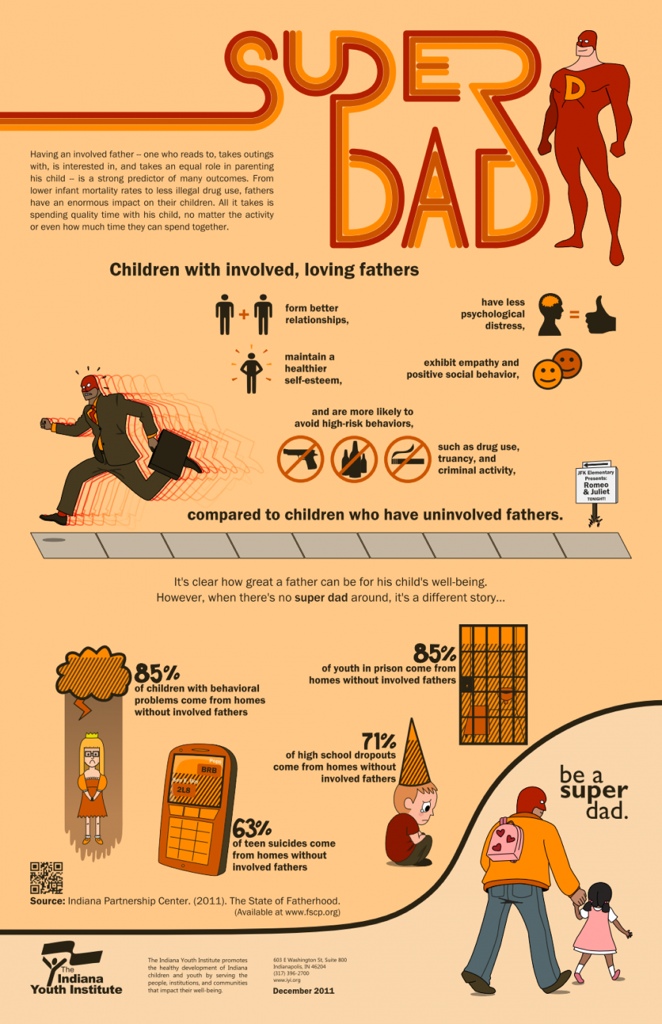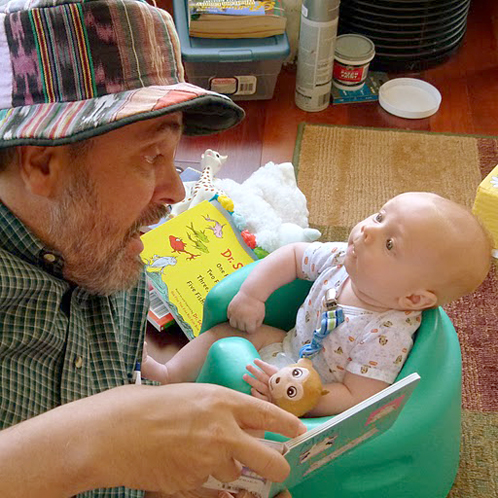How Dads Make a Big Difference in Language Development for Kids
As a graduate student studying speech therapy, I repeatedly observed the phenomena of “dada” as a child’s first word. All the students in my playgroup seemed to have “dada” down, which inevitably made the moms a little upset. After all, why does dad get first billing? I remember my professor saying it was a common occurrence in her experience because often times, mother’s spend a lot more time talking about dad, “when will daddy be home?” “Look daddy’s here!” and that repeated modeling and talking about dad reinforced the meaning of that word. Even though we can expect the “muh” and “duh” sounds to both be early developing sounds, there is just something special about dads. While mother’s have a significant impact on development – and it has been well established that various maternal characteristics (education) influence vocabulary, it’s also important to examine the role of dads in a child’s development. And as it turns out, their part is very important.
Dad’s Make the Difference with Vocabulary
We know the early years are crucial to development. A 2010 study from the College of New Jersey looked at families in low-income, two-parent, rural communities. They found that for children as early as 6 months of age, shared picture-book reading with dads who used a diverse vocabulary had a significant impact on the child’s language at 15 months and later child language development at 36 months of age.
In addition to book-reading, a diverse vocabulary seems to also play an important role in play as well.
Between the ages of 2-3, researchers at the University of North Carolina at Chapel Hill’s Frank Porter Graham (FPG) Child Development Institute and UNC’s School of Education found that in families with two working parents, fathers had greater impact than mothers on their children’s language development. They gleaned this from observed dads interactions and play with their toddler and the vocabulary that they used. Children whose fathers used more diverse vocabularies had greater language development when they were tested one year later; the mother’s vocabulary did not have a significant effect.
Dad’s do it Differently
Lets face it, play with dad is always different. Rough-housing in the pillow fort is always a little bit more intense when dad plays. A study from the Pew Research Center in 2011 found the “rough-housing” with dad in a game of “get the sock off his foot” helped emotional development. The researchers said “Rough and tumble play between fathers and their young children is part of their development, shaping their children’s brain so that their children develop the ability to manage emotions and thinking, and physical action altogether,” and called it “a key developmental stage for children in that preschool area between the ages of about two and a half and five.” Some have described the results of studies such as these by saying that roughhousing also promotes intelligence. Studies of rough-and-tumble play have found that children who do it more at home get better grades and make better friends than those who don’t. If that’s not a reason to pillow fight, I don’t know that is!
For dad’s struggling with how to get involved with their kiddos at an early stage, it seems that book reading and play are the best opportunities for modeling language. Dad’s should:
- Narrate their child’s actions
- Point to pictures in books and describe them
- Imitate their child’s sounds and words while expanding on them (for example, if your child says “doggy” you can repeat “Doggy. Yes, the doggy is running.”)
- Set aside special “daddy-child” playtime and make it a point to do this regularly
- Learn more about language development using ASHA’s online guide to developmental stages
- Take your play outdoors if that’s more your style. Learn soccer, football or T ball with your child.
Therapists should take this information into account when involving parents in the early intervention process and other therapy sessions where providing interactions with dad should also be incorporated.




